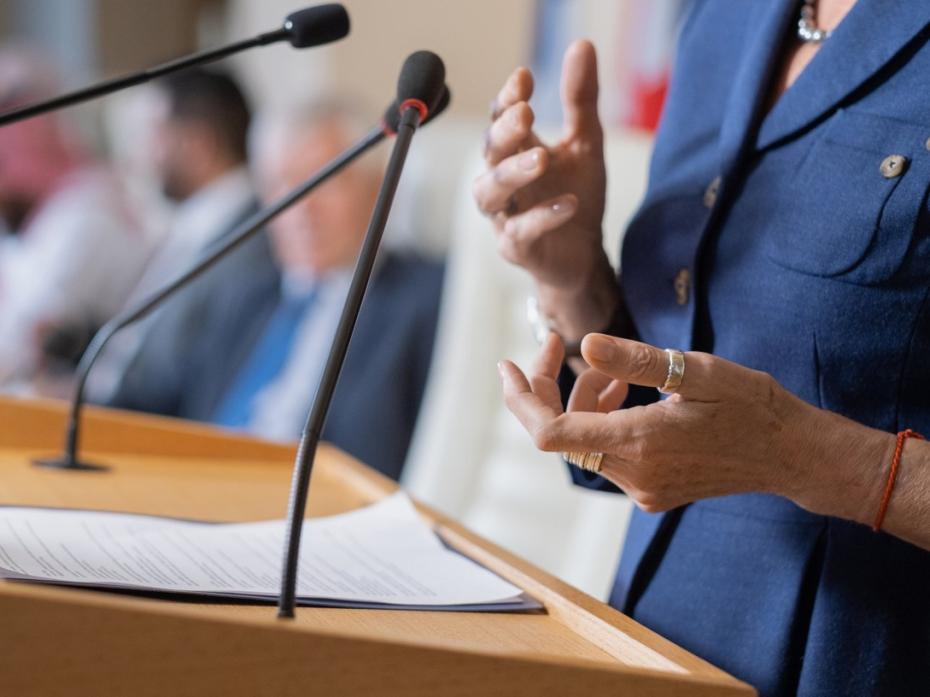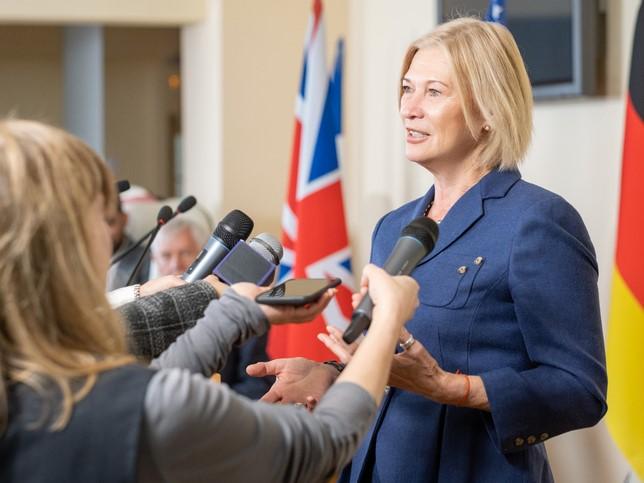
Parliamentary inquiries and lobbying explained
Martin Smith offers an overview of parliamentary inquiries and lobbying for academics, looking at who is involved, how effective it can be and what results it can offer beyond direct policy change
Research management
Sponsored by

Elsevier helps researchers and healthcare professionals advance science and improve health outcomes for the benefit of society.

The “A creative future” inquiry currently being concluded by the House of Lords Communications and Digital Committee raises a number of interesting questions about parliamentary lobbying and the role of academics in influencing public policy. First, who is engaged in making such representations? Second, is the engagement effective? Third, is it worth doing beyond consideration-of direct political outcomes? And, finally, will representations prompted by this inquiry have any significant impact on government policy for the creative sector?
Who does it?
The current Lords inquiry is a horizon-scanning exercise on the future of the UK’s cultural sector and creative industries and is monumentally ambitious, ranging in scope from IP protection and cultural exports to skills shortages and the impact of artificial intelligence. The list of organisations that have provided written evidence is a roll call of the UK’s main creative sector trade associations, research entities and interest groups. It includes pan-sector intermediary and research bodies (Creative UK and the UKRI-supported Policy and Evidence Centre), industry-specific trade representatives (the Design Council and the Advertising Association) as well as public funders (Arts Council England), training bodies (ScreenSkills) and one internet platform (Patreon). Submissions from arts-heavy universities sit alongside others from research councils, academics and prominent trade union, Equity. The missing dimension is primarily financial and commercial: there are no submissions from banks, venture capitalists or investment firms.
- Resource collection: How to promote your research for greater impact
- My experience of speaking in front of a select committee
- Writing and presenting reports for government: five dos and five don’ts
Parliamentary Select Committees take oral evidence based on the perceived quality of written submissions. The most interesting, or opinionated, evidence providers are invited to be cross-examined on the parliamentary record. This is an important and competitive process for universities and academics under the public engagement agenda. Although few of us will ever compete with Ai-Da the robot artist who, accompanied by developer Aidan Mellor, gave stunning “evidence” to the Lords enquiry in October 2022, a Parliamentary first. Committees draw on the written and oral evidence provided to make their analysis, reaching conclusions and forming recommendations before sending their reports for official publication.
Is it effective?
An earlier generation of scholars, largely from politics and public administration, put the subject of “lobbying” firmly on the academic map in the 1980s and 90s and the academic literature is now substantial. However, it offers little consensus over the effectiveness of lobbying due to contexts varying so greatly and difficulty assessing evidence that is often private or contested.
I worked as a parliamentary lobbyist for the National Consumer Council then ran a commercial lobbying company in Westminster and Brussels and know first-hand that, from a practitioner’s perspective, the question of effectiveness is problematic. The policy-influencing and legislative context is complex and variable depending on election outcomes, voting numbers and control of parliamentary business. Distinctions must be drawn between the purpose and processes of Public Bill Committees, in examining draft legislation, and Select Committees, in scrutinising the work of government, and between the procedures of the two Houses of Parliament. Two general observations apply.
First, the pursuit of research-driven, evidence-based policymaking remains an arena of intense frustration for academics, thinktanks and other interest groups. When it works, which requires excellent research plus high-level lobbying to deliver results, few experiences are more satisfying. I’ve seen this at close quarters on issues as diverse as a ban on the import of unsafe children’s’ toys in 1986 by means of a Private Member’s Bill, and the introduction of the UK’s animation tax credit in 2013, which halted an exodus of talent to Ireland and Canada. But such successful outcomes are very rare due to a score of reasons, including conflict with Treasury or Cabinet Office policy, poor tactics, lack of parliamentary time or filibustering.
Second, most lobbyists greatly overstate their influence. This applies equally to pressure groups, trade associations and commercial lobbyists – it goes with the territory. The most effective lobbyists are often people you never hear about: they have the good sense to stay out of the bragging game.
Is it worth doing?
We live in a click-driven age characterised by the ubiquity of SurveyMonkey and the dictates of marketing teams. In universities, REF requirements ensure that academics must fully engage with such operations. Research reports and impact studies pile up on policymakers’ desks. The authors of these reports can seem reluctant to distinguish between outputs and outcomes – in other words, achieving substantive changes to public policy, because of the incentives imposed upon them. This can distort a hard-headed understanding of the meaning of evaluation. In the parliamentary world, by contrast, success and failure are more easily determined.
In the parliamentary context, any assessment of the role of Select Committees in taking evidence and influencing policy must be finely nuanced. The brutal fact is that hundreds of parliamentary reports, many of them excellent, gather dust and deliver nothing by way of change. But this takes a narrow view of impact.
Returning to the specific context of the Lords’ inquiry into A creative future, the Committee has already performed a public service by amassing a large body of publicly available up-to-date evidence on the condition of, prospects for, and challenges faced by the UK’s creative sector. Academics have made authoritative contributions alongside industry representatives. So yes, for academics it is worth making the effort to engage.
Such parliamentary representation may not always deliver direct policy outcomes, but it can profoundly change the business environment and deliver indirect impact. A good example is the work of the Culture Select Committee in the lower House on music streaming and artists’ remuneration. This work is widely regarded as definitive; while it has not yet delivered concrete changes to music rights and artist remuneration, the policy and commercial environments in which these matters are discussed and negotiated has, by general consent, been radically transformed.
Outcomes of ‘A creative future’?
One distinguishing feature of Lords Select Committees is that they are generally more expert than their Commons equivalents. The membership of the Communications and Digital Committee includes former Culture Minister Lord Vaizey; former Director General of the BBC, Lord Hall; former ballet dancer and creative director of the Royal Opera House, Baroness Bull; and the current chair of publishing firm Random House UK, Baroness Rebuck. It is chaired by Baroness Stowell, a former BBC Head of Corporate Affairs, who has sought to position the report as an input into another more high profile document, also due out in January 2023, a “sector vision” for creative industries to be published by the government in collaboration with the Creative Industries Council, chaired by Sir Peter Bazalgette.
The publication of this “sector vision” has been delayed because of political turmoil and ministerial turnover within the Department for Digital, Culture, Media and Sport. Its contents have been partially trailed by Sir Peter himself in oral evidence to A creative future, but its wider substance is eagerly anticipated. Sir Peter was the principal author of an influential report on much the same subject matter in 2017. Within weeks, we may be in a better position to judge who is influencing whom, and answer the policy question: how does a “sector vision” differ from a “sector strategy”?
Martin Smith is a visiting fellow in creative industries at Goldsmiths, University of London, and a member of the Universities Policy Engagement Network.
If you found this interesting and want advice and insight from academics and university staff delivered direct to your inbox each week, sign up for the THE Campus newsletter.
Research management
Sponsored by


